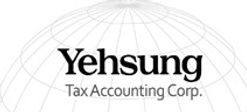Korean Taxes on Individuals
- sungwoobae
- 2024년 1월 15일
- 3분 분량
Personal Income Tax
1. Overall
Residence
An individual who has a domicile or place of residence in Korea for at least 183 days during
the tax year generally is deemed to be resident in Korea. Individuals normally are considered resident upon arrival in Korea if their occupation generally would require them to reside in Korea for 183 days or more or if their family accompanies them to Korea and the individuals have substantial assets (e.g. household property) in Korea.
Basis
Residents generally are subject to tax on worldwide income. However, with respect to foreign-source income, short-term resident foreigners whose total period in Korea does not exceed five out of the past 10 years are taxed only on foreign-source income paid in or remitted to Korea. Other nonresidents are taxed only on Korean-source income.
Taxable income
Taxable income comprises wages and salaries, dividends, interest income, rental
income, business income, pension income, severance income, and other income.
2. Tax Rates
Taxable Income | Tax Rate(Not including local surtax) |
Up to KRW 12 million | 6% |
Over KRW 12 million up to KRW 46 million | 15% |
Over KRW 46 million up to KRW 88 million | 24% |
Over KRW 88 million up to KRW 150 million | 35% |
Over KRW 150 million up to KRW 300 million | 38% |
Over KRW 300 million up to KRW 500 million | 40% |
Over KRW 500 million | 42% |
Deductions and allowances
Various deductions, allowances, and credits are permitted, including an earned income deduction, credits for qualifying medical expenses, certain educational expenses, certain charitable donations, etc.
Foreign tax relief
A Korean resident subject to tax in Korea and overseas is entitled to a foreign tax
credit for foreign tax paid in respect of income earned overseas. The credit is limited to the amount of tax payable in Korea on the foreign-source income.
3. Compliance for individuals:
Tax year : Calendar year (1.1~12.31)
Filing status : Individual Basis
No provisions exist for married couples to file a joint personal tax return.
Filing and payment
Residents generally are required to file an individual income tax return and pay the
tax due on such income before 31 May of the following year or before their permanent departure from Korea.
A taxpayer who receives only salary or severance income may not be required to file a return, since employers are required to withhold income tax at source on such income on a monthly basis and finalize
Penalties
Penalties and interest may be imposed for late filing or failure to file a return and for the
understatement of taxable income.
Value Added Tax
Taxable transactions
VAT is levied on the supply of goods and provision of services. VAT applies to
foreign suppliers that provide electronic services (e.g. games, audio or video files, software, etc. activated through mobile communication devices or computers) to persons (other than tax-registered businesses) in Korea using information communication networks. As from 1 July 2019, the scope of electronic services is expanded to include cloud computing, advertising services, and other agency services provided to allow a person to use an asset located in Korea (e.g. a residential property).
Rates
The standard VAT rate is 10%.
A zero rate applies to exports, services rendered outside Korea, etc.
Registration
All domestic businesses supplying taxable goods or services must register with the tax authorities for VAT purposes. Foreign suppliers that provide electronic services via information communication networks should access the National Tax Service (NTS) website and apply for simplified registration of the business with the NTS.
Filing and payment
Filing and payment generally are made on a quarterly basis, but monthly filing is permitted for early VAT refunds if the goods or services provided by the business are zero-rated for VAT purposes.
Other taxes on individuals
1.Social security contributions
Employers and employees must make social security contributions (i.e. national pension, medical insurance, unemployment insurance, and industrial injury compensation insurance) to the relevant social security authorities. The social security contribution rates vary depending upon number of employees and the industry.
2. Payroll tax
Enterpreuners must withhold taxes on salary paid to its employees.
3. Real property tax
An individual that owns land, buildings, ships, and/or aircraft at a certain assessment date is subject to property tax on such assets. The tax rates range from 0.1% to 4% depending on the type of property.
An individual that owns real estate, such as land or residential buildings, is subject to the comprehensive real estate tax in addition to the local property tax.
4. Transfer tax
Securities transaction tax is levied on the transfer or of shares at 0.5% (0.45% as from 1 April 2020) of the share transfer price. The rate is reduced to 0.1% or 0.25%, depending on the stock market, if listed shares are transferred.
5. Other
Individuals acquiring real estate, motor vehicles, heavy equipment, and certain other items must pay acquisition tax, generally at 4.6%, including the local surtax.
6. Net wealth/net worth tax
There is no net wealth/net worth tax.
7. Inheritance/estate tax
Inheritance tax is levied on the beneficiary at progressive rates up to 50%.

Comments